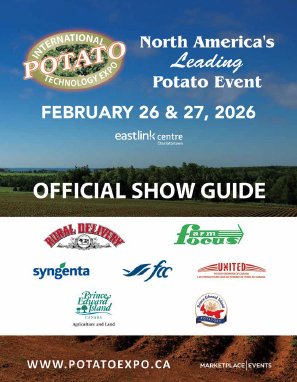RD December 2015 Letters
/What comes around gets around
RD: This is a super magazine and when I am finished reading it from cover to cover – my brother is eagerly waiting for it. He enjoys it as much as I do! Many thanks and keep up the good work!
L. Robertson
Antigonish, N.S.
Dear L. Robertson, so very pleased you share your magazine with your brother. It would be fun to hear from other subscribers who share their copy around, and see if we can find the one copy that goes to the most households. DvL
To a tea
RD: As faithful subscribers to the magazine, I thought this picture might appeal to you. We have a blueberry farm in Cape Breton and grow most of our own food. These ISA Browns joined our family this fall and have become great friends with our children. This is Shannon, she’s four years old. The ISA Brown is about 24 weeks old. The children love interacting with the animals. The chicken actually visited Shannon during a teddy bear tea party yesterday, very cute.
Sue MacKay
Grand River, N.S.
Thank you Sue. Yours is the first letter we have received by way of Facebook and subsequently published in the magazine. Seems to work. DvL
Late snow’s to blame?
RD: In the November “Pot Luck,” you asked why birds didn’t gorge on your grapes. I believe your area was affected as we were here in West Hants and everywhere else in these parts. Blame the extreme amount of late winter/spring snow on the ground this year.
I’d hoped that birds would delay their arrival, but I was wrong. Mile after mile, while travelling, we’d see desperate clusters of robins fighting over the narrow ribbons of weed patches cleared by snowplows. I heard killdeer for two days in April – then none until this fall. I watched a robin fighting off other robins for nearly a week over a patch of grass I’d cleared of snow.
I found this spring
heartbreaking.
Andree Lapare
Upper Burlington, N.S.
Andree, an interesting proposal. I’d really like to see a continuing exchange about this apparent lack of birds, if others have experienced the same, and what might be the cause(s). DvL
Recovering farmland
RD: After reading the article “Forged in love” by Rose Doucet in the October issue of Rural Delivery I was left with hope for “retired” farm properties. With agriculture shifting to large scale production it’s all too often that we see these small farms taken out of production and left to be divided up for development.
Just this past year in Truro we have seen a fully functioning pasture area of a dairy farm turned into a Nissan car dealership. Thus making this useful agriculture land, which I consider a limited resource, no longer available for agricultural use in the future. The story of Tim and Tanya Floyd is inspirational as they strived to keep this farm property a community asset and fulfill their dreams of a hobby farm rather than watch it become developed as non-agriculture property.
I agree with Tanya that people need to be more educated on agriculture, and I applaud her and Tim on supplying a place where people can become educated. In addition to education, their seasonal craft shop is a great asset to the community for both sellers and buyers alike. The work they have done shows us that there are options for these “retired farms” and gives hope to people like me who want to see agricultural properties kept in agriculture. I wish them luck in their plans for the future.
Nora Weatherbee,
Dalhousie Faculty of Agriculture student
Truro, N.S.
Nora, after seeing vegetables grow where for years there was a brick behemoth – Halifax’s Queen Elizabeth HS – I have some faith that the Nissan parking lot, unfortunate as that is to see, could be reversed some time down the road. The ribbon development out every street from your Bible Hill campus cries out for the application of a humongous plow hauled by Paul Bunyan’s ox.
As for “hobby farm,” curse the term. As we have preached for years, when doing one's own laundry or dish-washing or cooking meals is considered a hobby, then fine, raising one’s own food may be considered a hobby too. Until then, small and subsistence farming should be considered what they truly are and that is ways of getting by in the country. Thank you for sharing your sound ideas about saving small farms and farmland. DvL

















